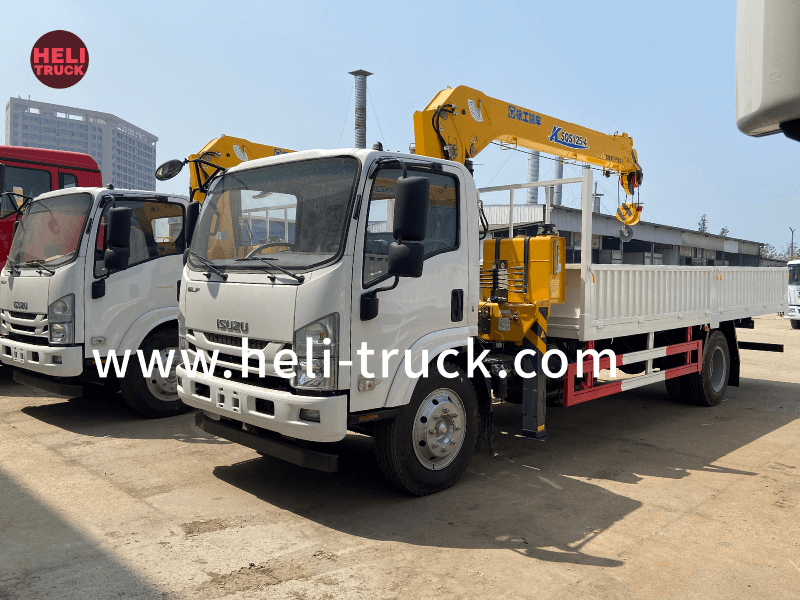Introduction
Waste management is a critical aspect of maintaining a clean and healthy environment. With the growing population and urbanization, the volume of waste generated has also increased significantly. Proper waste disposal methods are essential to prevent environmental pollution and public health hazards. Garbage compactor trucks play a vital role in efficient waste management by collecting, compacting, and transporting waste to disposal sites. This article explores the functions, types, benefits, and challenges of garbage compactor trucks in waste management.
Functions of Garbage Compactor Trucks
Garbage compactor trucks are specialized vehicles designed to collect and transport solid waste efficiently. They are equipped with a hydraulic compactor mechanism that compresses the waste to reduce its volume, allowing for more waste to be transported in each trip. The primary functions of garbage compactor trucks include:
1. Collection: Garbage compactor trucks are used to collect solid waste from residential, commercial, and industrial areas. They are equipped with a loading hopper or bin lifter to facilitate the collection of waste bins or containers.
2. Compaction: Once the waste is loaded into the truck, the hydraulic compactor mechanism compresses the waste to reduce its volume. This compaction process increases the truck's capacity and efficiency, enabling more waste to be transported in a single trip.
3. Transportation: After compaction, the garbage compactor truck transports the waste to designated disposal sites such as landfills, recycling centers, or waste-to-energy facilities. The compacted waste is securely contained within the truck's body to prevent spillage during transportation.
Types of Garbage Compactor Trucks
There are several types of garbage compactor trucks designed to cater to different waste management needs. The most common types of garbage compactor trucks include:
1. Rear Loader Compactor Trucks: Rear loader compactor trucks are equipped with a hydraulic compactor mechanism at the rear of the truck. Waste collectors manually load the waste into the truck through a rear hopper, which is then compacted using the hydraulic mechanism.
2. Front Loader Compactor Trucks: Front loader compactor trucks feature a hydraulic compactor mechanism at the front of the truck. These trucks are commonly used for commercial and industrial waste collection, where large waste containers are emptied into the truck using a front-loading arm.
3. Side Loader Compactor Trucks: Side loader compactor trucks have a hydraulic compactor mechanism on one side of the truck. These trucks are ideal for narrow streets and areas with limited access, as the waste can be loaded from the side without the need for rear or front access.
4. Mini Compactor Trucks: Mini compactor trucks are smaller in size and are suitable for collecting waste in congested urban areas or narrow alleyways. These trucks are maneuverable and efficient in collecting and compacting small volumes of waste.
Benefits of Garbage Compactor Trucks
Garbage compactor trucks offer numerous benefits in waste management, including:
1. Increased Efficiency: The compaction mechanism of garbage compactor trucks reduces the volume of waste, allowing for more waste to be collected and transported in each trip. This increased efficiency helps in optimizing the utilization of resources and reducing operational costs.
2. Improved Hygiene: Garbage compactor trucks are designed to contain and compact waste securely, minimizing odors and preventing spillage during transportation. This helps in maintaining a clean and hygienic environment, reducing the risk of disease transmission.
3. Environmental Protection: Proper waste management is essential for protecting the environment from pollution and degradation. Garbage compactor trucks play a crucial role in transporting waste to designated disposal sites, preventing littering and illegal dumping that can harm ecosystems and wildlife.
4. Occupational Safety: The use of garbage compactor trucks reduces the manual handling of waste by workers, minimizing the risk of injuries and accidents. The hydraulic compactor mechanism automates the waste compaction process, ensuring the safety of waste collection personnel.
Challenges of Garbage Compactor Trucks
Despite their numerous benefits, garbage compactor trucks also face certain challenges in waste management, including:
1. Maintenance Requirements: Garbage compactor trucks are complex vehicles with hydraulic systems and compaction mechanisms that require regular maintenance and servicing. Failure to maintain these components can lead to operational issues and downtime, affecting waste collection schedules.
2. Capacity Limitations: While compaction increases the truck's waste-carrying capacity, there are limitations to the amount of waste that can be compacted in a single trip. Overloading the truck can impact its performance and stability, leading to safety risks and potential equipment damage.
3. https://www.heli-truck.com : Garbage compactor trucks themselves contribute to environmental pollution through greenhouse gas emissions and noise pollution. The use of fossil fuels to power these trucks can increase carbon emissions, affecting air quality and contributing to climate change.
4. Cost Considerations: The acquisition and operation of garbage compactor trucks involve significant costs, including vehicle purchase, maintenance, fuel, and personnel expenses. Municipalities and waste management companies need to carefully assess the cost-effectiveness of using compactor trucks compared to other waste collection methods.
Conclusion

Garbage compactor trucks play a crucial role in efficient waste management by collecting, compacting, and transporting solid waste to disposal sites. These specialized vehicles offer numerous benefits, including increased efficiency, improved hygiene, environmental protection, and occupational safety. However, challenges such as maintenance requirements, capacity limitations, environmental impact, and cost considerations need to be addressed to ensure the effective utilization of garbage compactor trucks in waste management. Overall, garbage compactor trucks are indispensable assets in maintaining a clean and sustainable environment for present and future generations.
